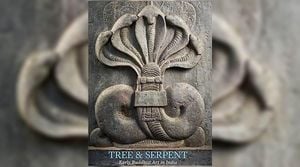On February 24, 2025, the Catholic Church honors the memory of several saints, including San Modesto de Tréveris, known for his dedication to rebuilding sacred sites during tumultuous times. This annual observance offers believers not only the opportunity to celebrate these significant figures but also to reflect on their virtues and contributions to the faith.
San Modesto de Tréveris is particularly noted for his efforts during the invasions of the Persian king Cosroes, who, around the year 600, devastated sacred locations and persecuted Christians. When called by God to restore the temples, Modesto rose to the challenge. He succeeded the late Archbishop Zacharias, dedicantly leading the reconstruction of key religious sites, including the Temple of the Holy Sepulcher and the Garden of Gethsemane.
According to the Martirologio Romano, San Modesto was active around 480 AD and remained influential during his tenure amid hardship. The church recognizes his works and devotion, celebrating not only his accomplishments but also his willingness to help others during dire predicaments.
February 24 is also the feast day of several other saints. Among them are San Sergio de Capadocia, who faced persecution and martyrdom for his beliefs, and San Evecio, known for opposing anti-Christian edicts under the emperor Diocletian. Both characters reflect the spirit of bravery and commitment to faith exemplified by Modesto.
San Sergio was particularly notable for his confrontation with the Roman authorities. During annual celebrations honoring Jupiter, he boldly declared the impotence of pagan idols, leading to his eventual arrest and execution as the governor sought to suppress Christian influence. His story, much like Modesto's, symbolizes unwavering faith amid adversity.
The Church's tradition of honoring saints on specific days stems from its long history of veneration for martyrs and figures of significant virtue. Each day of the liturgical calendar is marked by the names of those the faithful are encouraged to emulate and celebrate through prayer and mass.
Today, other names celebrated include San Etelberto, who was among the first Christian kings from Kent, and Beato Tomás María Fusco, who worked tirelessly for the welfare of marginalized communities. The onomastic celebrations reflect not just individual lives but also the Church's broader commitment to fortifying the fabric of Christian ethics throughout history.
Through the observance of the santoral, believers encourage introspection and gratitude for the foundations laid by these holy figures. The celebratory practices across congregations include special masses and collective prayers intended to invoke the virtues exemplified by these saints.
The Catholic calendar remains dynamic, with updates like the selection of new saints added through sanctification processes, as seen with the most recent canonizations. The significance of today, February 24, not only celebrates the past but also emphasizes the continuous legacy of Christian ideals for future generations.
By drawing on the stories of San Modesto de Tréveris, San Sergio de Capadocia, and others, the Church implicitly urges modern practitioners to find strength and motivation through the narratives of their faith. The remembering of these saints serves as both historical documentation and inspiration.
The observance of their contributions allows congregants to connect with the challenges faced by earlier Christians, fostering resilience and commitment within their paths today.
On this day, the Catholic community worldwide takes the time to reflect upon the values and lessons imparted by these noteworthy figures who have shaped the Church's narrative through actions dedicated to service and faithfulness.
San Modesto de Tréveris' legacy, much like those of his fellow saints, not only enriches the culture of the Catholic Church but also provides personal frameworks for believers seeking to navigate their own paths with righteousness and purpose.



